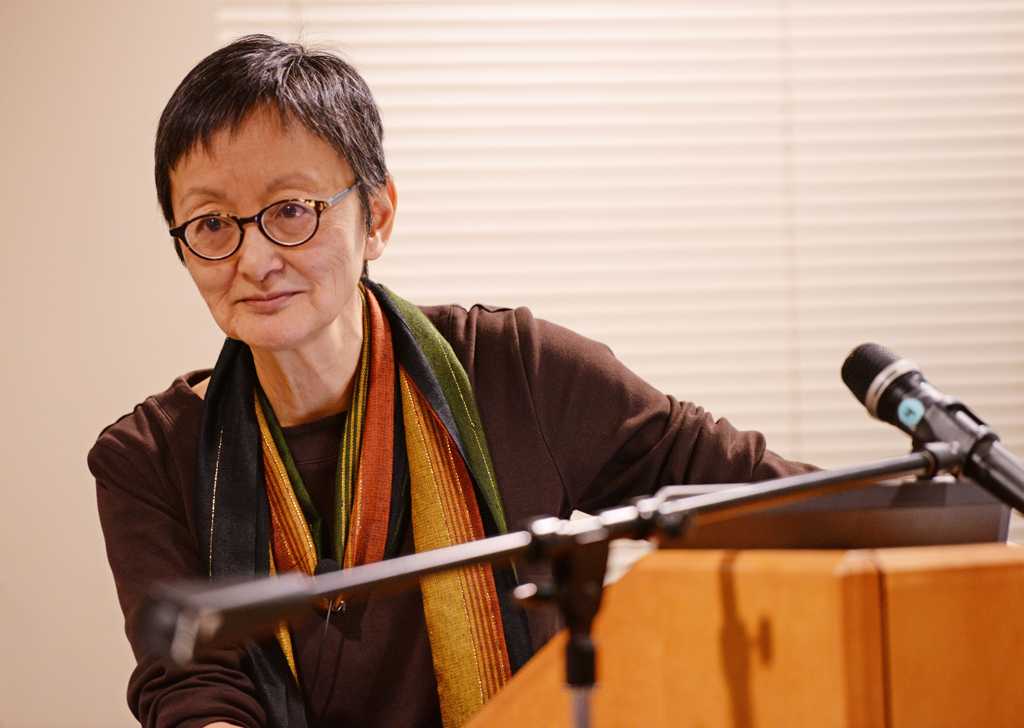The myth of the unbiased judge


Pat K. Chew, Judge J. Quint Salmon and Anne Salmon chaired Professor and Distinguished Faculty scholar at the University of Pittsburgh School of Law, presented the "Myth of the Color-blind and the Gender-blind Judge" lecture in the Cathedral of Learning on Wednesday. Nikki Moriello | Senior Staff Photographer
Because judges are humans, they are biased based on their experiences and lives — and that’s okay, said law professor Pat K. Chew said at her Wednesday afternoon lecture.
“We anticipate the insights a judge’s life experience brings as positive,” Chew said. “We should do the same with their experiences on race and gender.”
Wednesday at 12 p.m., about 50 students, professors and community members gathered on the 20th floor of the Cathedral of Learning to hear Chew, a distinguished faculty scholar at Pitt’s School of Law, discuss common misconceptions about judges’ biases, particularly when it comes to race and gender. The talk — part of a Center on Race and Social Problems speaker series — focused on dispelling the myth that a judge can or even should be “gender-blind” and “color-blind” when deciding a case.
Chew argued biases are an inherent part of being a human and those biases are valuable when it comes to making courtroom decisions.
“Judges are humans with human attributes,” Chew said.
Two Pittsburgh judges, David Cashman and Donna Jo McDaniel, who were not at the panel, said judges can’t escape bias, but bias doesn’t help determine the outcome of a court case.
Cashman, who serves on the Allegheny County Court of Common Pleas, said the legal system works best when biases stay out of the courtroom.
“Judges understand that they’re human and will have these biases, but they also understand that those biases shouldn’t be involved in the job,” Cashman said.
A judge is responsible for interpreting the law and refraining from applying preconceived biases about a person or a crime to a case, Cashman said.
“You may think something is morally or legally wrong, but you have to look at it from the defendant’s point of view,” Cashman said.
McDaniel, an Allegheny Court judge, said particular biases, such as disliking child molesters, are universal, but judges should still try to move past those thoughts at work.
Pitt law professor Jasmine Gonzales Rose said the inescapability of bias makes it an important discussion.
“We can’t necessarily be unbiased,” Gonzales Rose said. “We’re all influenced and affected by racism and sexism, growing up in this society.”
Gonzales Rose said bias is so inevitable because some of it is unconscious, such as thinking someone is unintelligent because that person is foreign.
Chew said applications of those unconscious biases, such as court cases in which plaintiffs do well when they have judges of their race, inspired her talk.
Sophomore social work major Angelica Walker said Chew’s talk was important in understanding criminal justice and how reforms can perfect the system.
“Professor Chew said there were a lot of studies that still needed to be done,” Walker said. “Hopefully I can do some of them.”
Walker said she’s interested in studying bias because she hopes to enter criminal justice reform after college and wants to help create a more diverse, less biased court system.
Chew said judges require diversity and individuality in order to interpret the law.
“The reality is that the law is not always clear. There are interpretational choices,” Chew said. “Acknowledging that [judges are] human doesn’t mean that the system is corrupt. It makes the system better.”
According to Gonzales Rose, diversity in the courtroom, such as hiring more judges of color, would reduce negative biases and eventually help the court system escape bias-based issues.
“The more diverse judges we have the better,” Gonzales Rose said. “If we can have that wide amount of experiences our justice system will be much better off.”
In the meantime, Gonzales Rose said, any students going into law should be honest with themselves about their biases, rather than try to suppress them.
“Really think about your own biases,” Gonzales Rose said. “And in each situation, ask yourself, ‘Who is really benefiting from the law? What is justice?’”
Correction: In a previous version of this story, The Pitt News reported that Chew said, “Judges will all have biases.” She did not. The story has been updated to reflect this change.
Recent Posts
Opinion | School should be in the summer
Although this may be controversial, I believe that from this data, it is evident that…
Weathering the storm: Pittsburgh teams have tackled some of the toughest environments
The end of the year in western Pennsylvania is always marked by two things —…
Notes From an Average Girl // Notes on Book Banning
In this edition of Notes From an Average Girl, senior staff writer Madeline Milchman writes…
To Be Honest // Yup, it is that damn phone
In this edition of To Be Honest, staff writer Evin Verbrugge writes about her phone…
Meaning at the Movies | Portraying Toxic ‘Adolescence’
In this edition of Meaning at the Movies, staff writer Lauren Deaton explores the mini-series…
Opinion | Climate change requires radical, immediate action
Contributing editor Emma Hannan talks about the effects of climate change and the actions cities…

